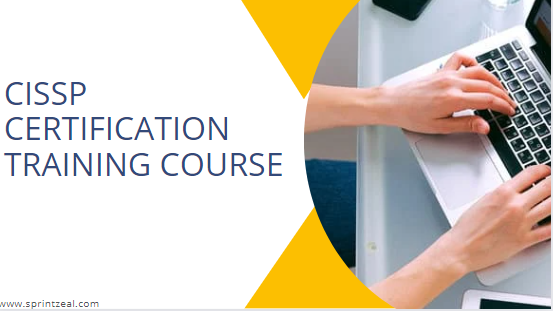
The CISSP (Certified Information Systems Security Professional) certification is a globally recognized credential in the information security industry. Offered by (ISC)², it validates a candidate’s expertise in designing, implementing, and managing a cybersecurity program. Achieving CISSP certification can lead to advanced career opportunities, higher salaries, and recognition in the field. However, the journey to becoming CISSP certified can be challenging. Here’s an easy guide to understanding CISSP training and how to succeed in it.
Understanding the CISSP Exam
Before diving into CISSP training, it’s essential to understand what the certification entails. The CISSP exam tests candidates on eight domains, covering various aspects of cybersecurity:
- Security and Risk Management
- Asset Security
- Security Architecture and Engineering
- Communication and Network Security
- Identity and Access Management (IAM)
- Security Assessment and Testing
- Security Operations
- Software Development Security
These domains cover the core competencies needed to protect organizations from threats, mitigate risks, and implement security protocols effectively. The exam consists of 100 to 150 multiple-choice and advanced questions that need to be completed in 3 hours, with a passing score of 700 out of 1000.
Prerequisites for CISSP
To be eligible for the CISSP Course in Portland OR, you need a minimum of five years of cumulative, paid work experience in two or more of the eight domains listed above. If you don’t meet this requirement, you can still take the exam but will be awarded an Associate of (ISC)² designation until you accumulate the required experience. This is an excellent option for those beginning their cybersecurity careers but eager to pursue the CISSP.
Choosing the Right CISSP Training
There are several ways to prepare for the CISSP exam. Choosing the right training method is essential to ensure you understand the material thoroughly. Here are some popular CISSP training methods:
1. Self-Study
Self-study is a flexible and cost-effective option. It allows you to set your own pace and tailor your learning process. Resources for self-study include the official (ISC)² CISSP study guide, practice exams, and online tutorials. However, self-study requires discipline and consistency to ensure you’re covering all the domains effectively.
2. Online Courses
Online courses are an excellent option for those who prefer structured guidance. Many platforms, such as Udemy, LinkedIn Learning, and Coursera, offer CISSP training courses taught by industry experts. These courses often include video lectures, quizzes, and practice questions, making it easier to understand complex topics. Some providers offer lifetime access to their materials, allowing you to revisit topics as needed.
3. Instructor-Led Training
For those who benefit from interactive learning, instructor-led training can be a good choice. This can be in-person or virtual and typically includes real-time instruction, group discussions, and hands-on activities. Many training centers and universities offer CISSP bootcamps, which are intensive courses that cover all the exam domains in a short period, usually over several days or weeks.
4. Official (ISC)² Training
The (ISC)² organization offers its own official CISSP training, available in multiple formats: classroom, online, and instructor-led. While often more expensive, this training provides the most direct insight into the CISSP exam structure and content. The official (ISC)² training materials are reliable and include official study guides, exam practice tools, and domain-specific guides to give you a well-rounded preparation experience.
Essential Study Tips for CISSP
Successfully passing the CISSP exam requires dedication and an effective study plan. Here are some tips to help you prepare:
-
Develop a Study Schedule: CISSP covers a broad range of topics, so it’s essential to create a study plan that allows ample time for each domain. Allocate more time to areas where you feel less confident.
-
Use Multiple Resources: While official materials are helpful, using additional resources, such as practice exams and flashcards, can enhance your understanding. Practice exams are particularly beneficial for familiarizing yourself with the question format and timing.
-
Focus on Conceptual Understanding: The CISSP exam emphasizes understanding over memorization. Make sure you grasp the “why” behind each concept, as this will help you apply knowledge to real-world scenarios in the exam.
-
Join Study Groups: Joining a study group can provide motivation and support. Many online communities, such as Reddit and LinkedIn groups, are dedicated to CISSP aspirants. Engaging with others can help you clarify doubts, share resources, and stay motivated.
-
Take Practice Exams Regularly: Practice exams help you assess your progress and identify weak areas. By taking them regularly, you can improve your speed and accuracy, which is essential for the actual exam.
-
Stay Updated on Cybersecurity Trends: CISSP exam questions are often based on current industry practices. Staying updated on cybersecurity trends can provide practical knowledge that complements theoretical study.
Benefits of CISSP Certification
Achieving CISSP certification can have a significant impact on your career. Some of the benefits include:
- Career Advancement: CISSP certification is highly valued by employers, leading to job opportunities in management and senior-level security positions.
- Increased Earning Potential: Certified CISSP professionals often command higher salaries due to their expertise.
- Global Recognition: CISSP is recognized worldwide, enabling you to work in various regions and industries.
- Professional Credibility: Holding a CISSP credential showcases your commitment and knowledge in cybersecurity, earning respect among peers and stakeholders.
Conclusion
Preparing for the CISSP certification can be challenging, but with the right resources and dedication, it’s achievable. Whether you choose self-study, online courses, or official (ISC)² training, make sure to focus on understanding each domain in depth. By following a structured study plan, utilizing various resources, and taking practice exams, you’ll increase your chances of passing the CISSP exam and advancing your cybersecurity career.














